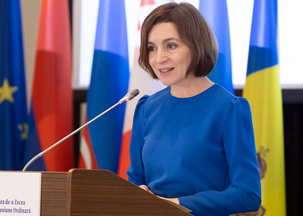Posted by BW Actual on Sep 26th 2025
BLACKWATER USA | DAILY BRIEF
Gaza
- U.S. envoy Steve Witkoff hinted that "some sort of breakthrough" on a Gaza peace deal will be announced in the coming days, but it's hard to imagine negotiations have advanced much since Israeli airstrikes on Doha earlier this month.
- There has been one significant development, at least: Pres. Trump met with Arab leaders on the sidelines of the UN General Assembly (UNGA) this week to pitch a 21-point peace plan that largely won the leaders' approval, and Trump says he's shared the high-level plan with Israeli Prime Minister Netanyahu, too.
- The Arab leaders would have especially appreciated one key pledge Trump tied to the plan he pitched to them: "I will not allow Israel to annex the West Bank." That may force Israeli hawks to back down from their threats to annex large parts of the West Bank in revenge for several countries' recognition of Palestinian statehood at UNGA this week.
Palestinian statehood
- Palestinian Authority (PA) President Mahmoud Abbas addressed UNGA remotely yesterday - because the U.S. denied him a visa to attend the summit in person.
- Abbas used his address to denounce both Hamas's Oct. 7 attacks and Israel's subsequent war and "genocide" in Gaza.
- He also declared that his PA is willing to administer Gaza after the war. That idea has been proposed before, but Israel has repeatedly rejected it and certainly would again. It's anyway hard to see how the feckless PA could effectively govern Gaza when it has largely failed to administer the West Bank - even in brighter days when Israel gave it more autonomy and full access to its funds.
- The U.S. plan instead backs a plan that would put former British Prime Minister Tony Blair in charge of a temporary administration for Gaza that would exclude the PA and see the post-war territory through a five-year recovery period modeled after Timor-Leste's and Kosovo's transitions to statehood.
- All of these post-war proposals are premature until a viable ceasefire plan is in place.
Moldova
- The Insititute for the Study of War reports that Russian intelligence may incite violent protests to remove pro-Western Moldovan President Maia Sandu from power - if, that is, their covert efforts to sway Sunday's election by sparking anti-NATO fears fail to oust her at the ballot box.
- The Russian influence campaign in Moldova has been vast and crafty. In one clever operation, Russia paid for Moldovan Orthodox priests to make pilgrimages to Moscow and then sent them home with loaded debit cards and great memories.
- The priests duly complied with their Russian hosts' suggestions to create Telegram channels telling their flocks to vote for candidates with "traditional values" - and Russian backing - over those aligned with "gay Europe."
Russia
- Russia banned fuel exports for the remainder of 2025 as it deals with shortages due to "logistical reasons" - i.e., successful Ukrainian attacks on its energy infrastructure poorly timed to coincide with planned maintenance outages.
- The latest Ukrainian strikes have been unusually intense and successful: overall Russian fuel production is reportedly down by about 10%.
Yemen
- Israel launched airstrikes targeting Houthi military leaders in Sana'a, Yemen yesterday. Israeli Defense Minister Israel Katz claimed his jets killed "dozens of Houthi terror operatives," but the Houthis said only two of their men died in the strikes.
- Yesterday's Israeli strikes were a response to a Houthi drone attack on Eilat a day earlier, which was itself a response to 12 Israeli strikes on the Yemeni port of Hodeidah the day before that.
China
- Pres. Xi visited the majority-Uighur region of Xinjiang for the third time in as many years, and declared Beijing's programs to pacify the restive region a success: "the party’s strategy for governing Xinjiang in the new era is scientific and effective, and that it must be adhered to for the long term."
- Those programs have aimed to erase vestiges of Uighur cultural and religious independence and subordinate the Muslim minority to central party rule, using tactics that the UN and U.S. have called "serious human rights violations" - like sending troublemakers to forced indoctrination camps.

